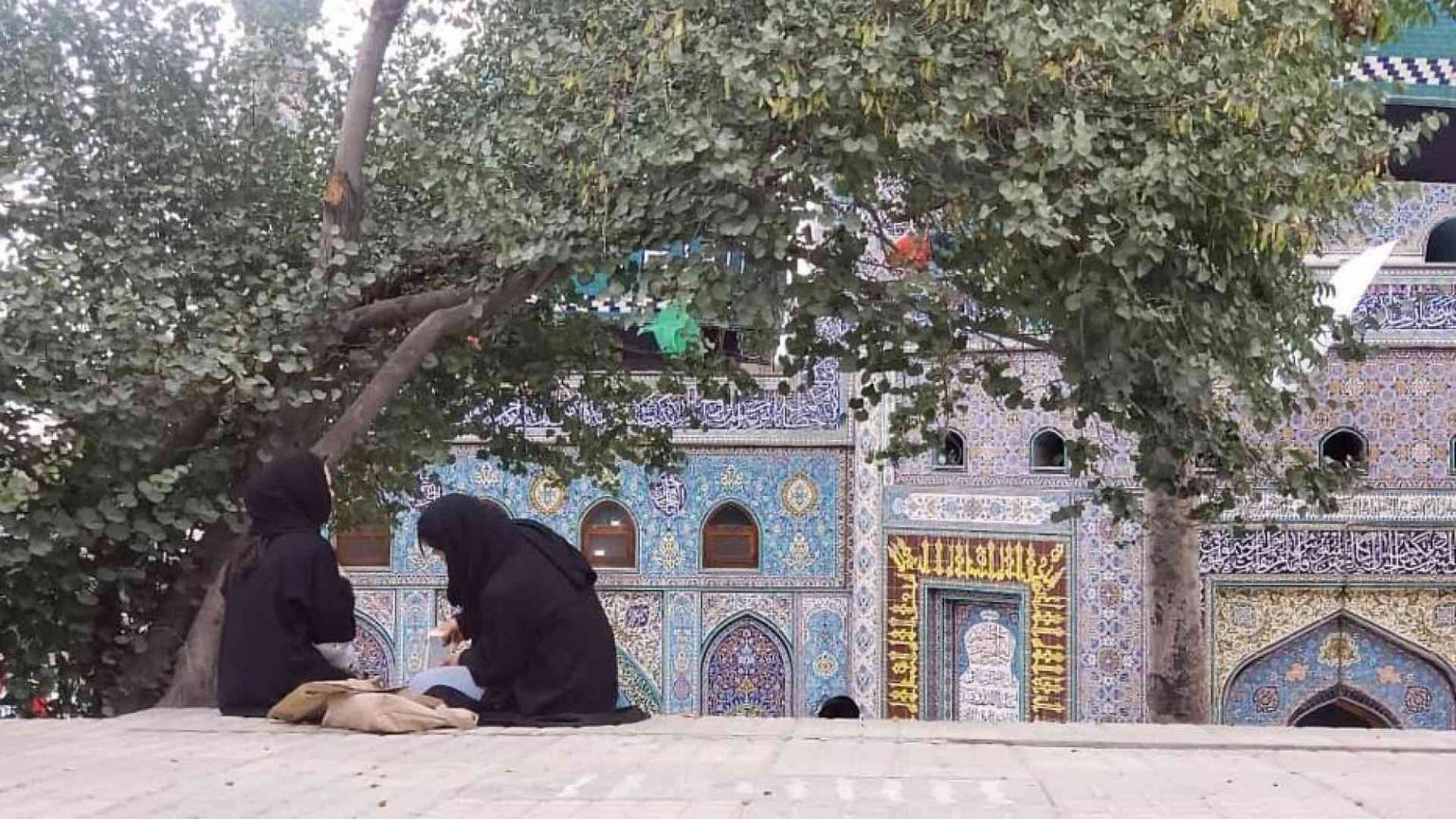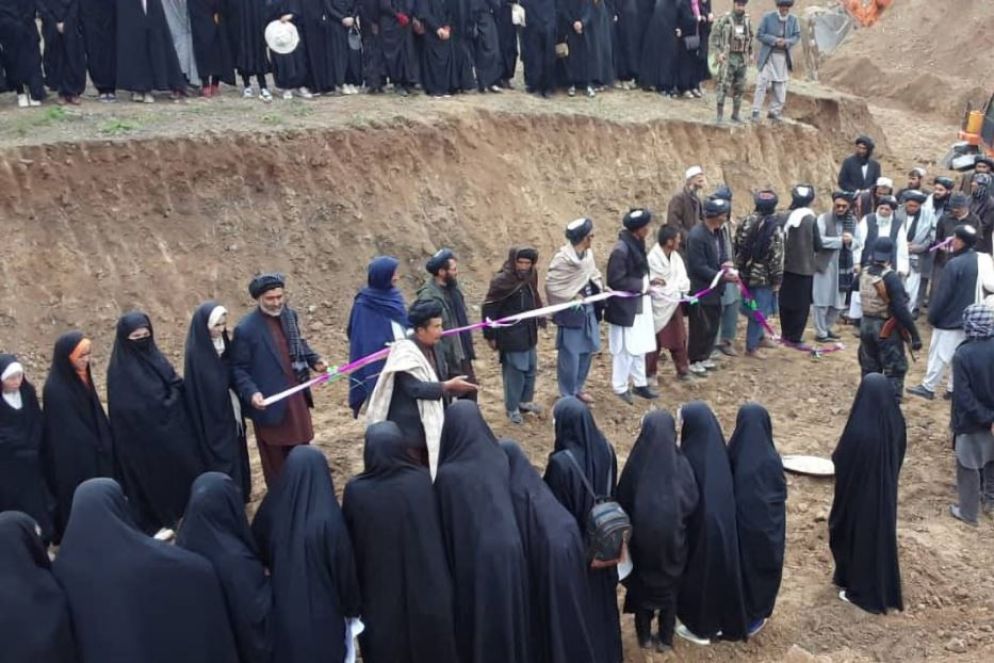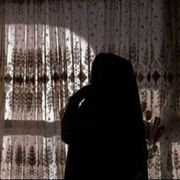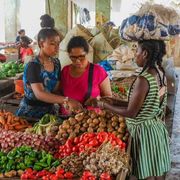Mahdia and girls without schools in the Afghanistan of madrasas
di Redazione
Teenage girls are forbidden to study, so the only alternative to isolation are religious schools. They learn the Koran by heart. «But we have no other option»

"Women without borders" is the Avvenire's new initiative for International Women's Day: a series of exclusive reports telling the stories of women's conditions in forgotten countries. (MORE INFORMATION HERE)
Mahdia, a 14-year-old girl, was on her summer school break when the Taliban regained power in Afghanistan. One of their first actions was to ban education for girls beyond the sixth grade. At that time, Mahdia was in the sixth grade and was able to attend school for only four more months. However, the following year (2022), under the Taliban's rules, she was no longer allowed to continue her education. This ban deeply affected Mahdia, leading her into severe depression.
Hakima, Mahdia's 37-year-old mother, says that after her daughter was deprived of education, she suffered from extreme depression. She recalls: «When schools were closed to girls, my daughter became very depressed. She would always sit in the corner of her room and cry. The Taliban also banned women and girls from going outside. There was nowhere we could go. One time, she became very ill. We had to take her to the hospital, and the doctor told us that my daughter was severely depressed and might develop a serious mental illness. I was terrified and cried, thinking about what I would do if I lost my daughter».
After this incident, Mahdia’s mother began searching for a way to help her daughter and bring her out of isolation. «I talked to some women in the neighbourhoods. They suggested sending her to a religious school so she could see her school friends, engage her mind, and feel better», she said.
Following the advice of women in her neighbourhoods, Hakima decided to enrol her daughter in a madrasa to help her recover from depression. However, for Mahdia and her family, education in a religious school was not an ideal substitute. «In my opinion, the subjects taught in school are better and more essential than those in a madrasa. Science, technology, and school subjects have a more positive impact on a person’s mind and mental state. But we have no other solution», said Hakima.
Farrokh-Liqa, Mahdia’s 51-year-old grandmother, also did not fully agree with this decision. «I never sent my children to religious schools because, in my belief, madrasas are not places for learning modern education. When Mahdia became ill, we were forced to decide to send her to a religious school. Honestly, I am not satisfied with religious studies», she told.
Mahdia herself has no interest in religious education. She says that, following the doctor’s and her family’s advice, she spends a few hours outside the house every day and visits a mosque near her home. Mahdia said: «I have no interest in religious studies. All of the lessons are repetitive, passed down from one generation to the next. School teaches modern subjects. I am very interested in learning technology. My dream is to study computer science, but as long as the Taliban are in power, that is impossible».
Since she was banned from attending school, Mahdia has stayed in touch with only one of her former school friends. «I only stay in touch with one friend from school—Razia. She was not only my classmate but also my best friend. When the Taliban banned us from going to school, most of my classmates fell into depression. Razia, who can no longer attend school, now spends her time weaving carpets with her siblings», she told.
Under the Taliban's rule, religious schools have become the primary centres for Islamic education and are managed by the Ministry of Hajj and Religious Affairs, based on a strict interpretation of Sharia law. After the Taliban regained power in August 2021, many of the country’s educational institutions underwent significant changes, with religious schools receiving more support and expansion. Currently, the number of religious schools and centres surpasses that of regular schools in Afghanistan. According to the Taliban Ministry of Education, there are over 21,257 religious schools and educational centres, compared to more than 18,000 public and private schools, with over three million young students enrolled in these religious institutions.

Hibatullah Akhundzada, the leader of the Taliban, issued a decree at the beginning of the 1401 Afghan school year to establish “jihadist schools”. This decree called for one jihadist school to be set up in each province, with a capacity to accommodate up to 1,000 students. Three months after the decree (May 2022), the Taliban established the first such school in the "Pul-e-Charkhi" area east of Kabul. At that time, the Taliban’s Ministry of Education called it the largest school in the country. By the end of the year, Taliban officials announced that a central jihadist school had been established in all 34 provinces of Afghanistan.
Since the Taliban first came to power, although they did not oppose the reopening of boys' schools, they prevented the reopening of girls' schools beyond the sixth grade. Afghanistan is now the only country where girls and women are deprived of this basic right. However, the Taliban’s Ministry of Education has stated that there is "no age restriction" for girls’ education in religious schools.
On the other hand, girls' education in Afghanistan faces significant challenges. After the Taliban’s return to power, they closed down secondary and high schools for girls in most areas of the country and shut universities to them. While some religious schools for girls focus on teaching Islamic subjects, this education cannot replace a comprehensive educational system.
Sharifa, a 13-year-old girl currently in the sixth grade, attends a religious school in Kabul during the winter break, where she spends about four hours a day learning religious subjects. Sharifa is happy that she can go to school and study. «Religious studies are good, I can learn about religious matters. But I am very worried that this will be my last year in school. Because of the Taliban’s law, I won’t be able to go to school anymore. I hope the Taliban regime will fall», she said.
Fatima, Sharifa’s 51-year-old mother, says that she can only provide education for one of her daughters. She explains: «Only my daughter (Sharifa) is going to school. My son studied until the ninth grade, but we couldn’t support him financially anymore. My older daughter and my second son haven’t studied; they both work in a carpet-weaving company. My second son, who is 15 years old, used to go to school. Four years ago, when there was a suicide bombing at his school, he was very young and got scared, so he couldn’t go back to school».
Fatima managed to buy her daughter a notebook and pen for 50 Afghanis. «We are facing many financial problems. My husband works for daily wages. Sometimes he can earn 60 Afghanis a day, but sometimes he can’t find work at all. For Sharifa, the first day she went to school, I was able to buy a notebook and pen for 50 Afghanis», she said.
Haniya Frotan (pseudonym), a journalist from Rukhshana Media
This article has been produced in collaboration with Rukhshana Media, a platform focused on women's issues in Afghanistan. Rukhshana is one of the few media outlets that specifically covers the situation of women. It was founded in 2020 by Zahra Joya, an Afghan journalist. Due to her professional work, Zahra has received multiple international awards and was named Woman of the Year by Time magazine in 2022. Currently, all journalists working for this media outlet inside Afghanistan operate under pseudonyms and in secrecy due to security threats.
© RIPRODUZIONE RISERVATA







